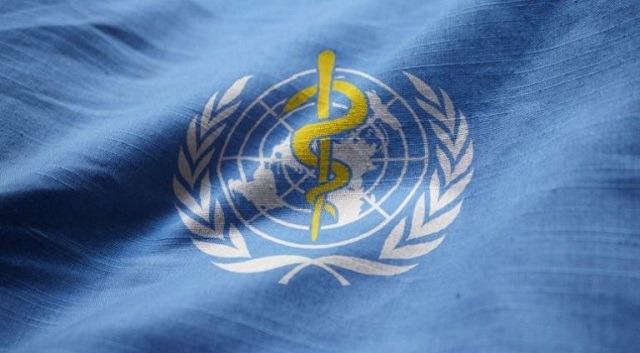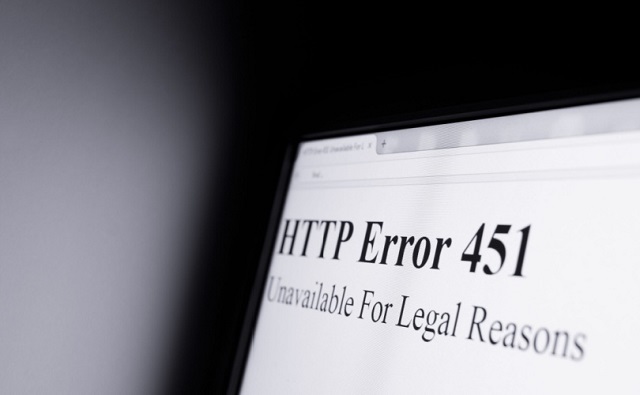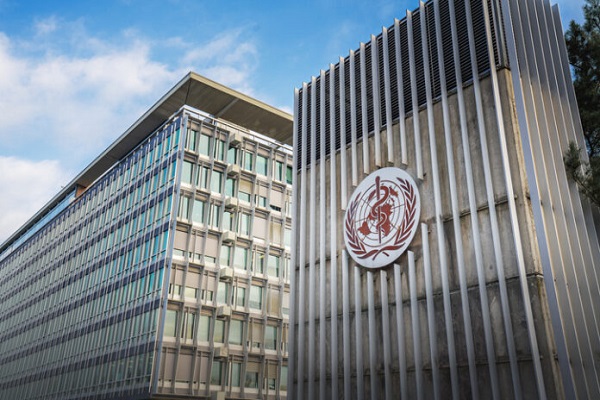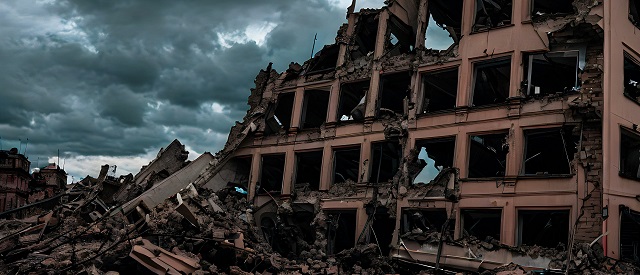COVID-19
WHO health treaty a convenient cover for more government overreach: Bruce Pardy

From the MacDonald Laurier Institute
By Bruce Pardy
The updated regulations will transform the WHO from an advisory body to the directing mind and will of global health.
Last September, the CBC ran a hit piece on Conservative MP Leslyn Lewis after she warned that a new international pandemic treaty could undermine Canadian sovereignty over public health.
Catherine Cullen, the CBC journalist, quoted three academics to debunk Lewis’ claims. It’s nonsense, said Stephen Hoffman of York University. “So far from the truth that it’s actually hard to know where to begin,” said Kelley Lee of Simon Fraser University. It’s fearmongering, said Timothy Caulfield of the University of Alberta, as no treaty can suspend the Canadian Constitution. That last part is correct, but Lewis is right to be concerned. Under the guise of international cooperation, governments are devising a cover to enact even tougher public health restrictions next time a crisis is declared.
The World Health Organization (WHO) is drafting a new pandemic agreement and amendments to the International Health Regulations, which since 2005 have set out countries’ obligations for managing the international spread of disease. Member countries of the World Health Assembly are expected to approve both in May. The agreement would establish governing principles for an international pandemic management regime, and the updated regulations will transform the WHO from an advisory body to the directing mind and will of global health.
Technocrats learned a lot from COVID. Not how to avoid policy mistakes, but how to exercise control. Public authorities discovered that they could tell people what to do. They locked people down, closed their businesses, made them wear masks and herded them to vaccination clinics. In Canada and elsewhere, people endured the most extreme restrictions on civil liberties in peacetime history. If the new proposals are anything to go by, next time may be worse.
Under the new health regulations, the WHO will have the authority to declare public health emergencies. Countries will “undertake to follow WHO’s recommendations.” WHO measures “shall be initiated and completed without delay by all State Parties … (who) shall also take measures to ensure Non-State Actors operating in their respective territories comply with such measures.”
In other words, governments will promise to do as the WHO directs. They will make private citizens and domestic businesses comply too. Lockdowns, quarantine, vaccines, surveillance, travel restrictions and more will be on the table. Under the draft agreement, countries would commit to censoring “false, misleading, misinformation or disinformation.” During COVID, despite governments’ best efforts, dissidents managed to seed doubts about the mainstream pandemic narrative. In the future, things may be different.
WHO officials and proponents of the proposals won’t admit to any of this out loud, of course, and you won’t hear much about these plans in the mainstream press. But the draft proposals, at least the ones released, say so in black and white.
Many national governments will be on board with the plan. That may seem counterintuitive since it appears to diminish their control, but more valuable to them is the cover that WHO directives will provide for their own heavy hands. Officials will be able to justify restrictions by citing international obligations. Binding WHO recommendations leave them no choice, they will say. “The WHO has called for lockdowns, so we must order you to stay in your home. Sorry, but it’s not our call.”
That sounds like a loss of sovereignty, but it is not. Sovereign states have exclusive jurisdiction in their own territory. WHO directives would not be directly enforceable in Canadian courts. But national governments can agree to follow the authority of international organizations. They can craft domestic laws accordingly. That too is an exercise of sovereignty. They can undertake to tie their own hands.
Provinces might decide to go along also. Provinces have jurisdiction over many orders that the WHO might recommend. Lockdowns, vaccine mandates, quarantine orders and other public health restrictions are primarily provincial matters. The feds control air travel, international borders, the military, drug approvals and the federal workforce. The federal government’s power to make treaties cannot oust provincial legislative jurisdiction, but WHO cover for restrictive measures would appeal to provinces as well.
The WHO cannot suspend the Constitution. International norms, however, can influence how courts read constitutional provisions, and the meaning of the Constitution is fluid, as our Supreme Court is fond of insisting. If norms change, so might the court’s interpretation of the Charter of Rights and Freedoms. The WHO’s proposals can’t define Canadian constitutional rights, but they aren’t irrelevant either.
Proponents would deny that the WHO is seizing control or undermining democracy. Technically they are correct. National governments must approve the new international pandemic plan. Without their agreement, the WHO has no power to impose its dictates. And not all countries may be keen on all the details. The WHO proposals call for massive financial and technical transfers to developing countries. But climate change pacts do too, and these were embraced by rich countries, unable to resist the virtue signaling and validation of their own climate boondoggles.
States that sign on to the WHO proposals retain the sovereignty to change their minds, but leaving international regimes can be hellishly difficult. When the United Kingdom belonged to the European Union, it agreed to be subject to EU rules on all manner of things. It remained a sovereign country and could decide to get out from under the EU’s thumb. Brexit threatened to tear the country apart. Having the legal authority to withdraw does not mean that a country is politically able to do so. Or that its elites are willing, even if that’s what its people want.
The WHO proposals prescribe authority without accountability, but they do not eliminate sovereignty. Instead, national governments are in on the game. When your own government aims to manage you, national sovereignty is no protection anyway.
Bruce Pardy is executive director of Rights Probe, professor of law at Queen’s University and senior fellow at the Macdonald-Laurier Institute.
COVID-19
NIH Quietly Altered Definition For Gain-Of-Function Research On Its Website, Former Fauci Aide Confirms

 From the Daily Caller News Foundation
From the Daily Caller News Foundation
By JASON COHEN
National Institutes of Health (NIH) Principal Deputy Director Lawrence Tabak confirmed on Thursday that his agency’s communications department altered NIH’s definition for gain-of-function research, with the change being “vetted” by “experts.”
The NIH until Oct. 20, 2021 defined this research as “modif[ying] a biological agent so that it confers new or enhanced activity to that agent,” while “some scientists use the term broadly to refer to any such modification,” according to the House Oversight Committee. Republican Rep. Nicole Malliotakis of New York questioned Tabak, a former aide to Dr. Anthony Fauci, about the agency changing its definition of the research on its website, asking him who authorized the alteration.
WATCH:
The current website does not define gain-of-function research, but asserts this research is usually uninvolved with enhanced potential pandemic pathogens.
“The change was made by our communications department because of the confusion that people have about the generic term of gain-of-function and the specific term gain-of-function,” Tabak testified.
Malliotakis responded by suggesting the communications department would not be qualified to make a change like this and must have had other input.
“The content was vetted,” Tabak testified. “By individuals who are subject-matter experts.”
Fauci firmly denied that the National Institute of Allergy and Infectious Diseases (NIAID) funded gain-of-function research on bat-based coronaviruses at the Wuhan Institute of Virology (WIV) before the COVID-19 pandemic during a Senate hearing in May 2021.
“The NIH has not ever and does not now fund gain of function research in the Wuhan Institute of Virology,” Fauci said.
Tabak testified on Thursday that the NIH did fund this research at the Wuhan Institute of Virology, but it “depends on [the] definition.”
The NIAID, which Fauci previously led, funded the nonprofit group EcoHealth Alliance to study bat-based coronaviruses in China that consisted of the transfer of $600,000 to the WIV, the Daily Caller News Foundation previously reported.
COVID-19
COVID Lab Leak: Over four later, EcoHealth Alliance funding is finally suspended

From Heartland Daily News
Thursday, May 16, 2024
Federal Funding Stripped From Nonprofit at Center of COVID Lab Leak Controversy
Today, the Biden administration suspended federal funding to the scientific nonprofit whose research is at the center of credible theories that the COVID-19 pandemic was started via a lab leak at the Wuhan Institute of Virology.
This morning, the U.S. Department of Health and Human Services (HHS) announced that it was immediately suspending three grants provided to the New York-based nonprofit EcoHealth Alliance (EHA) as it starts the process of debarring the organization from receiving any federal funds.
“The immediate suspension of [EcoHealth Alliance] is necessary to protect the public interest and due to a cause of so serious or compelling a nature that it affects EHA’s present responsibility,” wrote HHS Deputy Secretary for Acquisitions Henrietta Brisbon in a memorandum signed this morning.
For years now, EcoHealth has generated immense controversy for its use of federal grant money to support gain-of-function research on bat coronaviruses at the Wuhan lab.
In a memo justifying its funding suspension, HHS said that EcoHealth had failed to properly monitor the work it was supporting at Wuhan. It also failed to properly report on the results of experiments showing that the hybrid viruses it was creating there had an improved ability to infect human cells.
Congressional Republicans leading an investigation into EcoHealth’s research in Wuhan, and the role it may have played in starting the pandemic via a lab leak, cheered HHS’s decision.
“EcoHealth facilitated gain-of-function research in Wuhan, China without proper oversight, willingly violated multiple requirements of its multimillion-dollar National Institutes of Health [NIH] grant, and apparently made false statements to the NIH,” said Rep. Brad Wenstrup (R–Ohio), chair of the House’s Select Subcommittee on the Coronavirus Pandemic in a statement. “These actions are wholly abhorrent, indefensible, and must be addressed with swift action.”
Beginning in 2014, EcoHealth received a grant from NIH’s National Institute of Allergies and Infectious Diseases (NIAID) to study bat coronavirus in China. Its initial scope of work involved collecting and cataloging viruses in the wild and studying them in the lab to spot which ones might be primed to “spillover” into humans and cause a pandemic.
Soon enough, EcoHealth used some of the viruses they’d collected to create “chimeric” or hybrid viruses that might be better able to infect human lung cells in genetically engineered (humanized) mice.
This so-called “gain-of-function” research has long been controversial for its potential to create deadly pandemic pathogens. In 2014, the Obama administration paused federal funding of gain-of-function research that might turn SARS, MERS, or flu viruses into more transmissible respiratory diseases in mammals.
In 2016, NIH flagged EcoHealth’s work as likely violating the 2014 pause.
EcoHealth President Peter Daszak argued to NIH at the time that the viruses his outfit was creating had not been proven to infect human cells and were genetically different enough from past pandemic viruses that they didn’t fall under the Obama administration pause.

Wuhan Institute of Virology and Peter Daszak of EcoHealth Alliance
NIH accepted this argument under the condition that EcoHealth immediately stop its work and notify the agency if any of its hybrid viruses did show increased viral growth in humanized mice.
But when these hybrid viruses did show increased viral growth in mice, EcoHealth did not immediately stop work or notify NIH. It instead waited until it submitted an annual progress report in 2018 to disclose the results of its experiments.
A second progress report that EcoHealth submitted in 2021, two years after its due date, also showed its hybrid viruses were demonstrating increased viral growth and enhanced lethality in humanized mice.
In testimony to the House’s coronavirus subcommittee earlier this month, Daszak claimed that EcoHealth attempted to report the results of its gain-of-function experiments on time in 2019, but was frozen out of NIH’s reporting system.
The HHS memo released today says a forensic investigation found no evidence that EcoHealth was locked out of NIH’s reporting system. The department also said that EcoHealth had failed to produce requested lab notes and other materials from the Wuhan lab detailing the work being done there and the lab’s biosafety conditions.
These all amount to violations of EcoHealth’s grant agreement and NIH grant policy, thus warranting debarment from future federal funds, reads the HHS memo.
That EcoHealth would be stripped of its federal funding shouldn’t come as too great a shock to anyone who watched Daszak’s congressional testimony from earlier this month. Even Democrats on the committee openly accused Daszak of being misleading about EcoHealth’s work and manipulating facts.
Rep. Raul Ruiz (D–Calif.), the ranking Democrat on the House’s coronavirus subcommittee, welcomed EcoHealth’s suspension, saying in a press release that the nonprofit failed its “obligation to meet the utmost standards of transparency and accountability to the American public.”
An HHS Office of the Inspector General report from last year had already found that EcoHealth had failed to submit progress reports on time or effectively monitor its subgrantee, the Wuhan Institute of Virology.
When grilling Daszak, Democrats on the Coronavirus Subcommittee went to great lengths to not criticize NIH’s oversight of EcoHealth’s work. The HHS debarment memo likewise focuses only on EcoHealth’s failures to abide by NIH policy and its grant conditions.
Nevertheless, it seems pretty obvious that NIH was failing to abide by the 2014 pause on gain-of-function funding when it allowed EcoHealth to go ahead with creating hybrid coronaviruses under the condition that they stop if the viruses did prove more virulent.
NIH compounded that oversight failure by not stopping EcoHealth’s funding when the nonprofit did, in fact, create more virulent viruses, and not following up on a never-submitted progress report detailing more gain-of-function research until two years later.
The House Subcommittee’s investigation into NIH’s role in gain-of-function research at the Wuhan lab is ongoing. Tomorrow it will interview NIH Principal Deputy Director Lawerence Tabak. In June, it will interview former NIAID Director Anthony Fauci.
Originally published by Reason Foundation. Republished with permission.
-

 espionage17 hours ago
espionage17 hours agoThe Scientists Who Came in From the Cold: Canada’s National Microbiology Laboratory Scandal, Part I
-

 Economy1 day ago
Economy1 day agoCanadians experiencing second-longest and third steepest decline in living standards in last 40 years
-

 National15 hours ago
National15 hours agoTrudeau’s internet censorship Bill C-11 will not be implemented until late 2025
-

 Great Reset2 days ago
Great Reset2 days agoBiden Administration Eager to Sign WHO Pandemic Treaty
-

 Energy2 days ago
Energy2 days agoNew Report Reveals Just How Energy Rich America Really Is
-

 Opinion2 days ago
Opinion2 days agoOrdinary working Canadians are not buying into transgender identity politics
-

 Economy2 days ago
Economy2 days agoFeds spend $3 million to fly 182 politicians and bureaucrats to climate conference
-

 Automotive2 days ago
Automotive2 days agoBiden’s Climate Agenda Is Running Headfirst Into A Wall Of His Own Making








